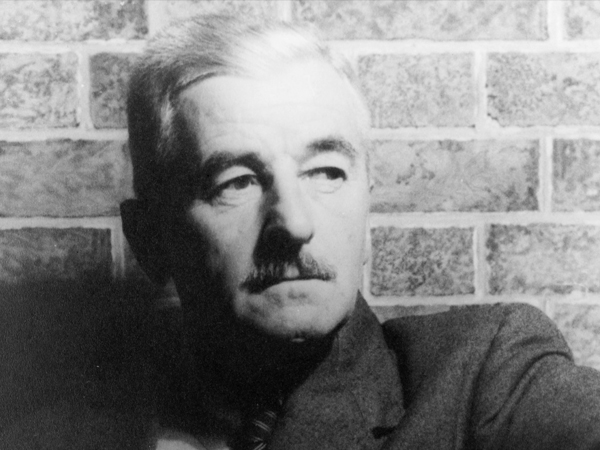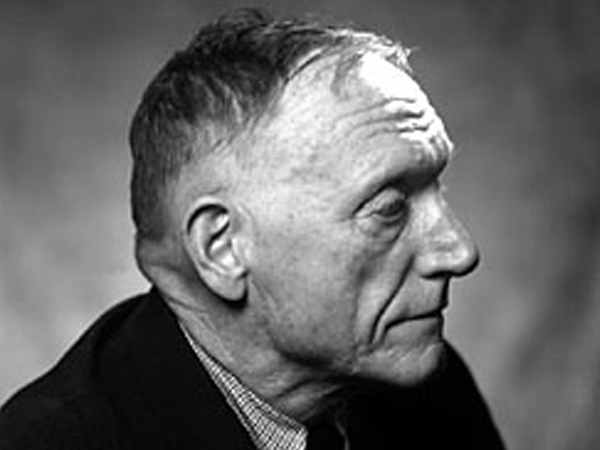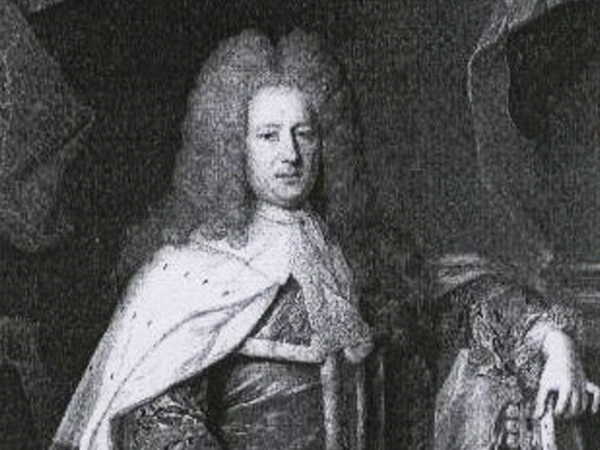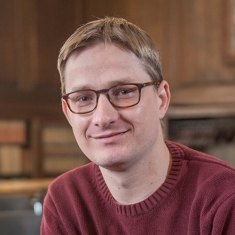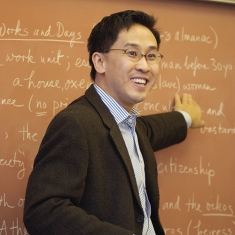The Department of History endeavors to cultivate a critical understanding of past and present human societies that will help students to become informed, thoughtful and engaged participants in the world. By offering our students the opportunity to discover historical inquiry as a meaningful part of their humanistic formation, history contributes directly to the highest intellectual mission of the college.
The Department of History at Smith College endeavors to cultivate a critical understanding of past and present human societies that will help students to become informed, thoughtful and engaged participants in the world. By offering our students the opportunity to discover historical inquiry as a meaningful part of their humanistic formation, history contributes directly to the highest intellectual mission of the college.
The study of history at Smith thus aims to prepare students to:
- Locate, analyze, and craft their own understandings of the past from a wide range of primary sources.
- Place such analyses in the context of historical and interdisciplinary scholarship.
These goals are achieved through developing knowledge and skills specific to the historical profession and humanistic scholarship. Students majoring in History are expected to:
- Distinguish between primary and secondary sources and read them closely and critically.
- Be familiar with major interpretative frameworks in the discipline of history and understand theoretical and methodological issues in historical debate.
- Acquire experience in supervised and independent research.
- Develop analytical and writing skills necessary for research and for presenting findings effectively.
The history curriculum ultimately helps students understand more clearly not only their place in contemporary society but also relationships between longer-term political, social, economic, intellectual and cultural currents in our increasingly globalized world.
Students majoring in history demonstrate their skills and knowledge in the following ways:
a) Taking HST 150 and satisfying the history major’s distribution requirements (geographical, chronological and thematic).
b) Taking a research seminar and writing a major research essay (or completing a major semester-long research project that may include both writing and digital components), which engages both primary and secondary sources and demonstrates command of major interpretative frameworks in history.
c) Honors students write a thesis based on independent research in primary and secondary sources and defend it publicly.
Advisers: Jeffrey Ahlman, Marnie Anderson, Ernest Benz, Joshua Birk, Darcy Buerkle, Sergey Glebov, Jennifer Guglielmo, Richard Lim, Elizabeth Pryor.
Requirements for the Major in History
The history major comprises 11 semester courses, at least six of which shall normally be taken at Smith, distributed as follows:
- HST 150: The Historian’s Craft.
- Field of concentration: five semester courses, at least one of which is a Smith history department seminar. Two of these may be historically oriented courses at the 200-level or above in other disciplines approved by the student’s adviser.
- Fields of concentration: Antiquity; Islamic Middle East; East Asia; Europe, 300-1650; Europe since 1650 to the Present; Africa; Latin America; United States; Women’s History; Comparative Colonialism.
- Note: A student may also design a field of concentration, which should consist of courses related chronologically, geographically, methodologically or thematically and must be approved by an adviser.
- Additional courses: five courses, of which four must be in two fields distinct from the field of concentration.
- No more than three courses taken at the 100-level may count toward the major.
- Geographic breadth: among the 11 semester courses counting toward the major, there must be at least one course each in three of the following geographic regions:
- Africa
- East Asia and Central Asia
- Europe
- Latin America and the Caribbean
- Middle East and South Asia
- North America
Courses both in the field of concentration and outside the field of concentration may be used to satisfy this requirement. Courses cross-listed in the history department section of the catalogue count as history courses toward all requirements.
AP courses do not count toward the major.
The S/U grading option is not allowed for courses counting toward the major.
A reading knowledge of foreign languages is highly desirable and is especially recommended for students planning a major in history.
Advisers: Jeffrey Ahlman, Marnie Anderson, Ernest Benz, Darcy Buerkle, Sergey Glebov, Jennifer Guglielmo, Richard Lim, Elizabeth Pryor.
Requirements for the Minor in History
The minor comprises five semester courses. At least three of these courses must be related chronologically, geographically, methodologically or thematically. At least three of the courses will normally be taken at Smith. Students should consult their advisers.
The S/U grading option is not allowed for courses counting toward the minor.
Students wishing to pursue individualized study in their junior or senior years on campus may enroll in a Special Studies tutorial (HST 400). A student must secure the agreement of a faculty member to supervise a particular project prior to enrolling for a Special Studies. Examples of the kinds of work done in Special Studies tutorials include:
- In-depth reading in an area not covered in another course
- The execution of a research proposal developed in another course (either library research or empirical research); and other options, to be negotiated between the student and a particular faculty member
Director: Darcy Buerkle
History 430d Thesis
8 credits
Full-year course; offered each year
History 431 Thesis
8 credits
Offered fall semester each year
Requirements
The History honors program is a one-year program taken during the senior year. If admitted, students write a thesis in both semesters of the senior year, or they may propose to write the thesis in one semester, in each case for eight credits. Admission requires a grade-point average of 3.5 inside and outside the major.
The central feature of the history honors program is the writing of a senior thesis with the guidance of a faculty adviser. Each honors candidate defends the thesis at an oral examination which relates the thesis topic to the historical scholarship of the chosen field. The internal honors deadline for a complete polished draft suitable for review by a second reader is the Monday after spring break. Those drafts will then be evaluated by both the first and second readers. Readers will give comments that allow students to incorporate feedback so that they can turn in the final version by the College deadline, (the first week of April). A fall semester thesis is due the first day of the spring semester, with the oral defense normally falling before spring break.
If you would like to be considered for the honors program, meet with a faculty member in the history department to discuss your ideas and develop a proposal with the assistance of the potential thesis supervisor, during the spring semester of your junior year. Your proposal should include a full description of your topic, your planned research methodology (the breadth of sources you will use and how), a brief description of how your project fits into the historical scholarship on this topic, and a preliminary bibliography (including primary and secondary sources). The college requires that the faculty supervisor for the thesis be a member of the department, although you may have a second reader in another department or program. Submit your proposal to the Director of Honors in the History Department before the end of classes in your junior year, with the thesis supervisor’s signature.
Detailed information and the official application for honors are available at the class deans website under guidelines and forms for academic procedures.
The history honors major comprises 11 semester courses, at least six of which shall normally be taken at Smith, distributed as follows.
-
HST 150 The Historian’s Craft
-
Field of concentration: three semester courses, at least one of which is a Smith history department seminar. Two of these may be historically oriented courses at the 200–level or above in other disciplines, approved by the student's adviser.
-
The thesis counting for two courses (8 credits)
-
Four History courses or seminars, of which three must be in two fields outside the field of concentration
-
No more than three courses taken at the 100–level may count toward the major
-
Geographic breadth: among the 11 semester courses counting towards the major there must be at least one course each in three of the following geographic regions
-
Africa
-
East Asia and Central Asia
-
Europe
-
Latin America and the Caribbean
-
Middle East and South Asia
-
North America
-
Courses in the field of concentration and outside the field of concentration may be used to satisfy this requirement.
Courses cross–listed in the history department section of the catalogue count as history courses toward all requirements.
AP courses do not count toward the major or the Honors program.
The S/U grading option is not allowed for courses counting toward the history honors major.
A reading knowledge of foreign languages is highly desirable and is especially recommended for students planning an Honors major.
History Honors students choose one of two formats for their Honors projects: either a traditional thesis or an experimental thesis.
Traditional thesis:
Historically, students wrote theses in the form of an extended essay, ranging in length from 60 to 100 pages. Theses are expected to develop a research question, locate the question in existing historiography, and utilize primary sources, demonstrating command of historical methods of inquiry and the ability to conduct independent research and analyze primary sources. The student defends the thesis before the thesis committee consisting of the thesis supervisor and at least one second faculty reader.
Experimental thesis:
The experimental thesis includes all of the above but is written in the form of a research article to be published in an undergraduate journal. The Honors student in consultation with the adviser develops a research question, analyzes existing historiography, conducts independent research and interprets primary sources. In the fall semester, the student completes the draft of a research article of 10-15 thousand words. In the spring semester, the student polishes and edits the article, and submits it to a peer-reviewed undergraduate journal. The experimental model also includes a defense of the thesis before the thesis committee consisting of the adviser and at least one second faculty reader.
Recent honors thesis titles include:
"British and American Women in National-Socialist Propaganda"
"The Chinese Exclusion Era: Media, Politics and Community"
"The Choreography of Crucifixion"
"La Reina, La Loca: The Medieval 'Madness' of Queen Juana I"
"Imagining the Famiy: Neoliberalism and Welfare's End in the United States"
"Rethinking Imperialism: Globalization, Trade, and Tea in the Qing Dynasty"
"Sacral King to Augural Emperor: Transformations in Perspectives of Divination from Numa to Augustus"
"Between Russian and United States: Concepts and Conflicts of Jewish Citizenship and Subjecthood in the Early Twentieth Century"
"When I Need You, I Shall Send For You: An Analysis of Aksumite and Himyarite Authority in an East Roman World"
"Are You Not Entertained? Gladiatorial Munera and the Making of Roman Imperial Careers"
"The Girl Behind the Man behind the Gun": Class Distinctions Among British Women Munitions Workers During the First World War"
"Specters from the Nursery: Issues of Legitimacy and the Impact of Rumor on the Glorious Revolution of 1688/89"
"Sixth-Century Italy: Crisis and Change, Reconciling Frankish Annals with Their Sources"
"we enjoyed Mrs. Woolf but felt her Cambridge was not ours"
"Merit-Based Admissions to Kosher Kitchens: Changing Demands of Jewish Students at Smith College, 1887 to Present Day"
"Caught with their Pants Down: Clausewitz versus Sun Tzu in Light of Hitler's Military Collapse in Normandy"
"From Active Cathar to Passive Dominican: The Evolution of Women's Spirituality in Medieval Southern France"
"The Presentation of a Queen [Elizabeth I of England]"
"The White Woman’s Burden [in India under the British Raj]"
"Mother or Devil: Interpreting the Mistress-Slave Girl Bond [in the United States]"
"From Intransigence to Consensus: A History of the Peace Process in Northern Ireland"
"The Intersection of Public Policy and Social Movements: A Study of Black Power Student Movements at Two Northern Urban Universities 1966-1972"
"The British in Ireland: The Ulster Plantation"
"Stalking a Lost Deed: The End of Democracy in Postwar Czechoslovakia"
"Horsemen of the Apocalypse: German Expressionists and the Process of Political Radicalization"
"A United Front for Peace and Freedom: Anti-Fascism, Activist Politics, and their Impact on Political Culture, 1922-1939 [in the United States]"
"Two Aspects of the Medieval Soul: Medieval Sexuality and the De Amore of Andreas Capellanus"
"Too Jewish? Ethnicity and Assimilation in American Vaudeville 1880-1930"
"The Right to Resistance: The Development of Constitutional Theory in Sixteenth-Century France"
"The Desert with No Walls: Reassessing the Historical Portrayal of Early Egyptian Monasticism"
"Avant-Garde with Mass Appeal: Potemkin and Mother as Popular Cinema"
"National Political Awareness in the Localities Before and During the English Civil Wars"
"Anne Boleyn and the Politics of Religious Reform"
"Excuse me, but did you hear a piercing scream?": British Foreign Policy 1935-38, and the Failure of Collective Security in the Political Cartoons of David Low"
"Blest Be the Tie that Binds: Mennonites, Conscientious Objectors, and the American State, 1917-1947"
"The Constitutions of Clarendon: Their Role in the Dispute between Thomas Becket and King Henry II"
"To Bear, or not to bear...: The marital and maternal choices of Mary and Elizabeth"
"The Propitious Problem of Shell Shock: World War I as a Turning Point for Psychiatry in Britain and Germany"
"Laquelle était la vraie France? Vichy France, Free France, and the International Labour Organisation during World War II"
"An Exploration of the Alta California Presidios as Agents of Colonialism With a Special Focus on the Chumash Revolt of 1824"
"Imperial Insanity: The Role of Imperial Ideology in the Understanding and Treatment of Shell-Shock in the First World War"
"Gendering Reform: Aristocratic Vice, Old Corruption, and the Mary Anne Clarke Affair in the Story of English Reform, 1763-1820"
"The Evolution of Greek Identity in the Roman World: Understanding, Accepting, and Supporting Roman Rule"
"Carriers of the Nation: Changes in Women’s Reproductive Power in the AIDS-era: A Case Study of Botswana"
"The Lobo-Cabernite Affair: A Close Look at the Case Study as History and Historical Problem"
“She’s Not There”: Beyond the Vilifications of Norma Khouri’s Honor Lost "
"Defining Rites: Parliamentary Discourse on the Kenyan Female Circumcision Crisis 1929-1931"
"Swells, Men of the World, and Gentlemen: The Construction of Masculinities in London High Society, 1850-1880"
“Our Republic”: St. Enda’s College 1908-1916"
"Warwick the Queenmaker: John Dudley and the Succession Crisis of 1553"
"The Tenishev School Experiment: Pedagogy and Poetry"
"How Personal Crisis Made the Risorgimento: Mazzini and Cavour Before and After 1836"
“A Very Threatened and Nervous Group of People”: Public Scrutiny of Sexuality at Smith College in Two Historical Moments"
"Ambiguous Selves: Madeleine Pelletier’s Interwar Autobiographical Writing"
"Revival in Uganda: Church, State, and the Mukono Crisis of 1941"
"On Our Backs With a Bad Attitude: A History of the First Lesbian Sex Magazines"
"When the 'Brown Pest' Showed up at the Party: St. Pauli under the Nazi Regime"
"Remembering and Misremembering Louis Antoine Saint-Just""
"I defy anyone to take from me this independent like which I have given myself in the centuries and in the skies': Louis Antoine Saint-Just, Between Man and Myth"
"Stalinist Orientalism: Images of Soviet Central Asians and Deterritorialized National Identities in USSR in Construction"
"Let Us Sing Our Victory Long Live Sound"
"Popular Music in the American and French Revolutions"
"Legend and Myth-making during the Duke d'Enghien Affair"
"The Interim Solution: The Nazification of Hamburg's Germanistikand the Existence of the German University under National Socialism"
"Constructions of Islamic Identity: What is the Role of Islamic Institutions in Response to the Challence of Laicite in France"
History students at Smith choose from more than 50 courses taught by active scholars. The department offers classes in the ancient Mediterranean world, medieval and modern Europe, the United States, the Middle East, East Asia, Latin America and Africa.
Note: for the official list of course offerings for this semester, consult the schedule on Workday, or the online course search.
HST 150 (L) The Historian's Craft
Jeffrey S. Ahlman, Casey Bohlen
HST 200 (L) Modern East Asia
Marnie S. Anderson, Ernest Benz
HST 202 (L) Ancient Greece
Richard Lim
HST 206 (C) Topics in Ancient History: Diseases, Health and Medicine in the Ancient World
Richard Lim
HST 208 (L) Introduction to the History of the Modern Middle East
Angela Giordani
HST 223 (C) Women and Gender in Japanese History: Ancient Times to the 19th Century
Marnie S. Anderson
HST 225 (L) Making of the Medieval World, 1000-1350
Joshua Birk
HST 234 (C) Global Africa
Jeffrey S. Ahlman
HST 241 (L) Soviet Union in the Cold War
Serguei Glebov
HST 252 (L) Women and Gender in Modern Europe, 1789-1918
Darcy C. Buerkle
HST 278 (C) Decolonizing U.S. Women's History
Jennifer Mary Guglielmo
HST 280 (C) Topics in United States Social History: Im/migration and Transnational Cultures
Jennifer Mary Guglielmo
HST 355 (S) Topics in Social History: Gender and the Aftermath of War in the Twentieth Century
Darcy C. Buerkle
HST 371 (S) Topics in 19th Century United States History: Remembering Slavery: A Gendered Reading of the WPA Interviews
Elizabeth S. Pryor
HST 390 (S) Teaching History
Kate Todhunter
HST 399 (S) Historical Pedagogy
Jeffrey S. Ahlman
Cross Listed Courses
AMS 227 Trade and theft in Early America
Cristen Mucher
ENV 207 Introduction to Environmental History
Matthew Ghazarian
JUD 287 The Holocaust
Ernest Benz, Justin Daniel Cammy
LAS 201 Colloquium in Latin American Studies: Banana Republics--Crops and Capitalism
Javier Puente
MES 208 Introduction to the History of the Modern Middle East
Angela Giordani
MES 213 Sex and Power in the Middle East
Angela Giordani
Five College Courses
UMass Amherst
HIST 117 Science & Society/Modern China
Sigrid Schmalzer
HIST 180 Western Science and Technology I
Hadi Jorati
HIST 181 Western Science and Technology II
Shay Olmstead
HIST 380 SciTechWar - 20th Century U.S./Europe
Emily Hamilton
WGSS 286 History of Sexuality and Race in the U.S.
Tiarra Cooper
Hampshire College
CS 0257 Psychological Revolutions
Ethan Ludwin-Peery
Interterm 2023
Spring 2023
HST 150 (L) The Historian's Craft
Jeffrey Ahlman, Casey Bohlen
HST 201 (L) The Slik Road and Premodern Eurasia
Richard Lim
HST 203 (L) Alexander the Great and the Hellenistic World
Richard Lim
HST 213 (L) History of Modern China
Jesse Watson
HST 217 (L) World War Two in East Asia: History and Memory
Marnie Anderson
HST 226 (L) Renaissance and Reformation? Europe in the Late Middle Ages: Society, Culture, and Politics
Joshua Birk
HST 229 (C) A World Before Race?: Ethnicity, Culture and Difference in the Middle Ages
Joshua Birk
HST 236 (L) World History 1000-2000: The European Millennium?
Ernest Benz
HST 239 (L) Imperial Russia, 1650-1917
Sergey Glebov
HST 249 (L) Early Modern Europe 1600-1815
Ernest Benz
HST 253 (L) Women and Gender in Contemporary Europe
Darcy Buerkle
HST 259fm (C) Topics in African History-Femininities, Masculinities and Sexualities in Africa
Jeffrey Ahlman
HST 266 (L) Emancipation and the Afterlife of Slavery
Elizabeth Pryor
HST 267 (L) United States, 1877-1945: Race, Capitalism, Justice
Jennifer Guglielmo
HST 270sr (C) Topics in American History-Anatomy of a Slave Revolt
Elizabeth Pryor
HST 271 (C) Religion and US Capitalism
Casey Bohlen
HST 274 (L) US History Since 1945
Casey Bohlen
HST 286 (C) Recent Historiographic Debates in the History of Gender and Sexuality
Darcy Buerkle
HST 383dw (S) Topics-Research in U.S. Women's History-Domestic Worker Organizing
Jennifer Guglielmo
HST 399 (S) Historical Pedagogy
Jeffrey Ahlman
Cross-Listed Courses
AFR 117 (L) History of African American People to 1960
Samuel Ng
MES 225 (C) Egypt-Mother of the World
Angela Giordani
REL 223 (L) Modern Jews: A Global Diaspora
Lois Dubin
SWG 270 (C) Oral History and Lesbian Subjects
Kelly Anderson
AMS 302 (S) The Material Culture of New England, 1630–1860
Barbara Mathews
ARX 340 (S) Taking the Archives Public
Kelly Anderson
ENV 331 (S) Famine: A Global Political Ecology
Matthew Ghazarian
JUD 362yl (S) Topics in Jewish Studies-Yiddishland
Justin Cammy
LAS 301hw (S) Topics in Latin American and Latino/a Studies-Deep History of Water
Javier Puente
MES 322 (S) Arab Revolutions
Angela Giordani
Prerequisites for Candidates for Admission
- Transcript of undergraduate study giving evidence of academic achievement
- GRE examination
Distribution Requirement of Courses in History for the MAT Degree in History
The distribution requirement of courses in history can be fulfilled by courses taken at Smith College or by comparable courses taken at other colleges or universities prior to enrollment at Smith College. Equivalency will be determined in the manner currently used by the Curriculum Committee of the Department of History in evaluating and, if warranted, granting credit toward the undergraduate major for courses taken while studying away from Smith College. It is assumed that, normally, MAT candidates in history will have had a major or minor in history for their bachelor's degree and that their history courses taken at Smith College will supplement and build on their earlier courses in history at the college level.
For more information about applying to the MAT Program in History visit the Department of Education and Child Study or contact the Office of Graduate & Special Programs, 413-585-3050.
Education & Child Study Graduate & Special ProgramsOptimal Preparation
Ten history courses at the intermediate or advanced level, comparable to undergraduate courses at the 200 or 300 level at Smith College, distributed in four fields, as follows:
- Two courses in U.S. history
- Two courses in European history (since the Fall of Rome), one of which must treat history in the main before 1789, and one of which must treat history in the main after 1789
- Two courses in ancient Greek and/or Roman history
- Four courses in non-Western history, normally chosen from the following fields:
- Chinese or Japanese history
- Islamic history
- Latin-American history
- African history is also recommended, though it is currently not offered on a regular basis in the department.
- Courses in the history of the Indian subcontinent and of other regions of Asia may also be counted toward the "non-Western" distribution requirement, even though no courses in these fields of history are offered on a regular basis in the department
MAT candidates in history have the option of concentrating two of their four courses in non-Western history in the same field.
Minimal Requirements
Seven history courses (as stated above), distributed in four fields as follows:
- Two courses in U.S. history
- Two courses in European history (since the Fall of Rome), as specified above
- One course in ancient Greek or Roman history
- Two courses in non-Western history, as specified above
Emeriti
Joan Afferica
L. Clark Seelye Professor Emerita of History
Daniel Gardner
Dwight W. Morrow Professor Emeritus of History
Robert Haddad
Sophia Smith Professor Emeritus of History and Professor Emeritus of Religion and Biblical Literature
Daniel Horowitz
Mary Huggins Gamble Professor Emeritus
Helen Horowitz
Sydenham Clark Parsons Professor of History Emerita
Lester Little
Dwight W. Morrow Professor Emeritus of History
Emeriti (Continued)
Howard Nenner
Roe/Straut Professor Emeritus in the Humanitities (History)
David Newbury
Professor of History, Emeritus
Neal Salisbury
Barbara Richmond 1940 Professor Emeritus in the Social Sciences (History)
Joachim Stieber
Professor Emeritus of History
R. Jackson Wilson
Sydenham Clark Parsons Professor Emeritus of History
Ann Zulawski
Sydenham C. Parsons Professor of History and Latin American Studies
Research Associates
Sharon Farmer
Dagmar Herzog
John Higgins
Marshall Poe
Marylynn Salmon
Revan Schendler
John Sears
Michael Staub
Kenneth Stow
Robert Weir
Colleen Woods
The Thomas Corwin Mendenhall Prize
With the support of the Smith College Alumnae Association, this prize is awarded annually for an essay written within the current or the three preceding semesters in a regular history course. Essays originally submitted in seminars, for special studies or as honors theses are not eligible. If an essay was written in response to a specific question or problem posed by an instructor, the stated assignment should be submitted along with the essay.
The essay should indicate for which course and in which semester it was originally written. Submit a copy via email in pdf format to llettre@smith.edu by Friday, April 28, clearly identified in the subject line as a submission for the Mendenhall Prize competition. A student may submit no more than one essay for the competition.
Gladys Lampert and Edward Beenstock Prize
This prize is awarded for the best honors thesis in American studies or American history. Interested students should submit their theses no later than Friday, April 29. Submit a copy via email in .pdf format to llettre@smith.edu, and indicate in the subject line that it is for the Gladys Lampert and Edward Beenstock Prize.
Vera Lee Brown Prize
This prize is awarded for excellence in history to a senior majoring in history in the regular course.
The Merle Curti Prize
This prize is awarded for the best piece of writing on any aspect of American civilization. Interested students should submit a .pdf copy of their writing (one essay per student), no later than Friday, April 28 via email to llettre@smith.edu.
Hazel L. Edgerly Prize
This prize is awarded to a senior honors history student for distinguished work in that subject.
The history department encourages all students to consider studying abroad, especially in an institution that teaches in a language other than English.
A student planning to study away from Smith during the academic year or during the summer must consult with a departmental adviser concerning rules for granting credit toward the major or the degree. Students must consult with their major adviser for study away both before and after their participation in Junior Year Abroad programs.
In recent years, history majors and minors have studied on Smith’s Junior Year Abroad programs in Paris, Geneva, Florence and Hamburg. They have also studied in consortial programs in Spain, Japan and Mexico.
Students have also studied independently in a variety of other countries:
- Cairo, Egypt
- Rabat, Morocco
- Dakar, Senegal
- University of Natal at Pietermaritzburg, South Africa
- Dar-es-Salaam, Tanzania
- Ben Gurion University, Israel
- Amman, Jordan
- Beijing, China
- Yonsei, Korea
- Cuba
- Dominican Republic
- Australia: Trinity College Parkville, Adelaide, Sydney
- Otago, New Zealand
- Vienna, Austria
- Prague, Czech Republic
- Copenhagen, Denmark
- England: Bristol, London School of Economics; University College London; Royal Holloway; King's College London; School of Oriental and African Studies, Oxford; East Anglia; Queen Mary; Westfield Sussex; York
- Athens, Greece
- Ireland: Galway, Cork, University College Dublin, Trinity College Dublin, Belfast
- Amsterdam, Netherlands
- Coimbra, Portugal
- Russia: Yaroslavl, Saint Petersburg
- Scotland: Edinburgh, Glasgow, Saint Andrews
- Madrid, Spain
- New York
- Paris, France
For more information on these and other programs, visit the Study Abroad Office and consult with seniors who have returned from study elsewhere. As most programs are not designed specifically for history majors, students should consult with their major advisers.
Courses taken abroad must be approved to count toward the history major or minor after they have been completed. This is a separate process from the awarding of overall credit toward a Smith degree. Students present a petition through their adviser, with supporting documentation on the courses. The basic rule is that such courses should be roughly equivalent to a Smith course in reading, writing and class time. For further details on petitioning, please consult an adviser.
The same petition process governs other courses taken outside Smith, including at institutions in the United States during a summer or on an exchange program or during a semester of independent study or before transferring to Smith or before becoming an Ada Comstock Scholar.
Master of Arts in Teaching
Smith College offers a master of arts in teaching degree for those pursuing teaching in elementary, middle or high schools as well as for students wishing to do advanced study in the field of education.
Contact
Dewey House 106
Smith College
Northampton, MA 01063
Email: llettre@smith.edu
Department Chair: Serguei Glebov
Administrative Assistant: Lyndsay Lettre


